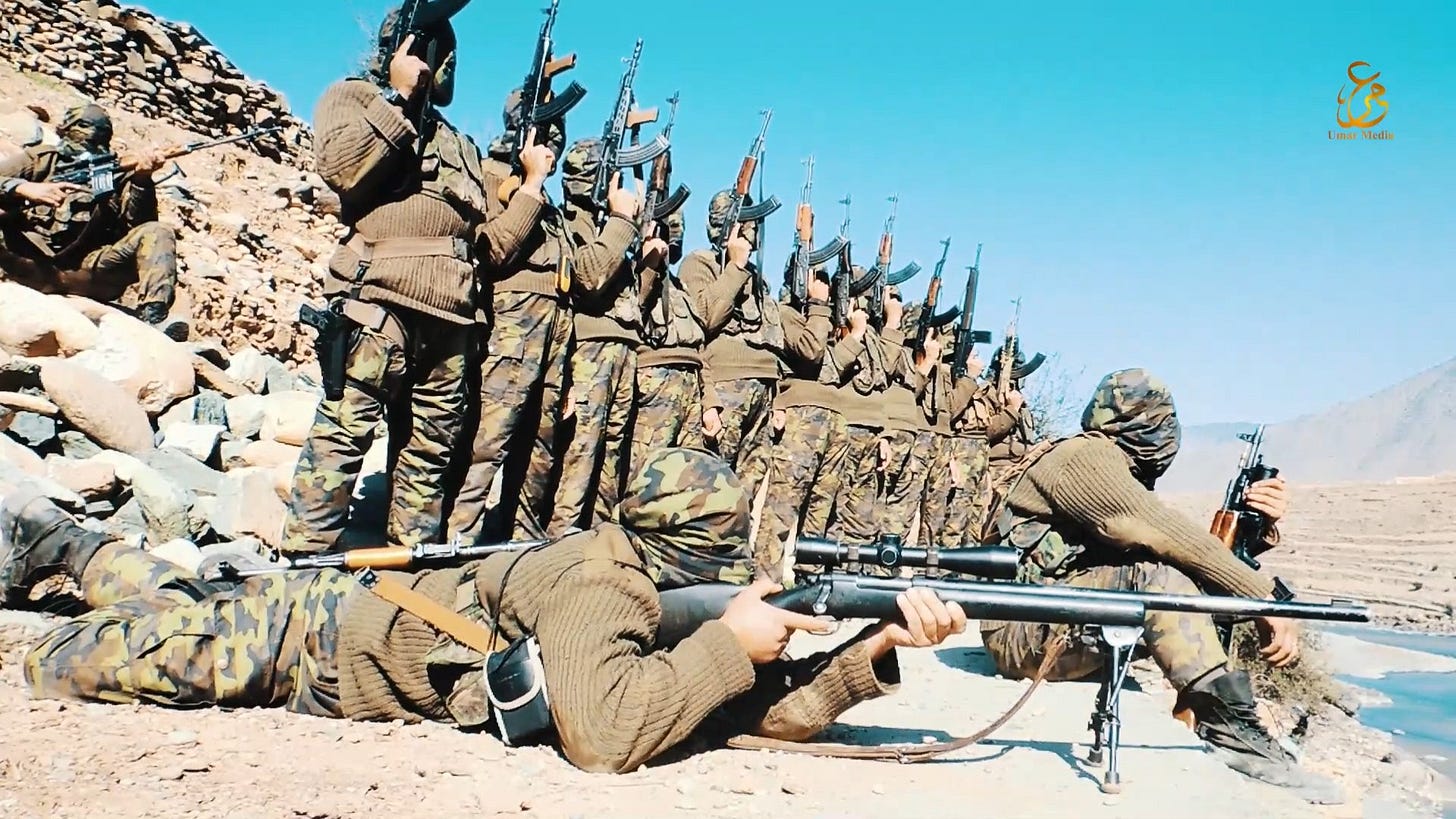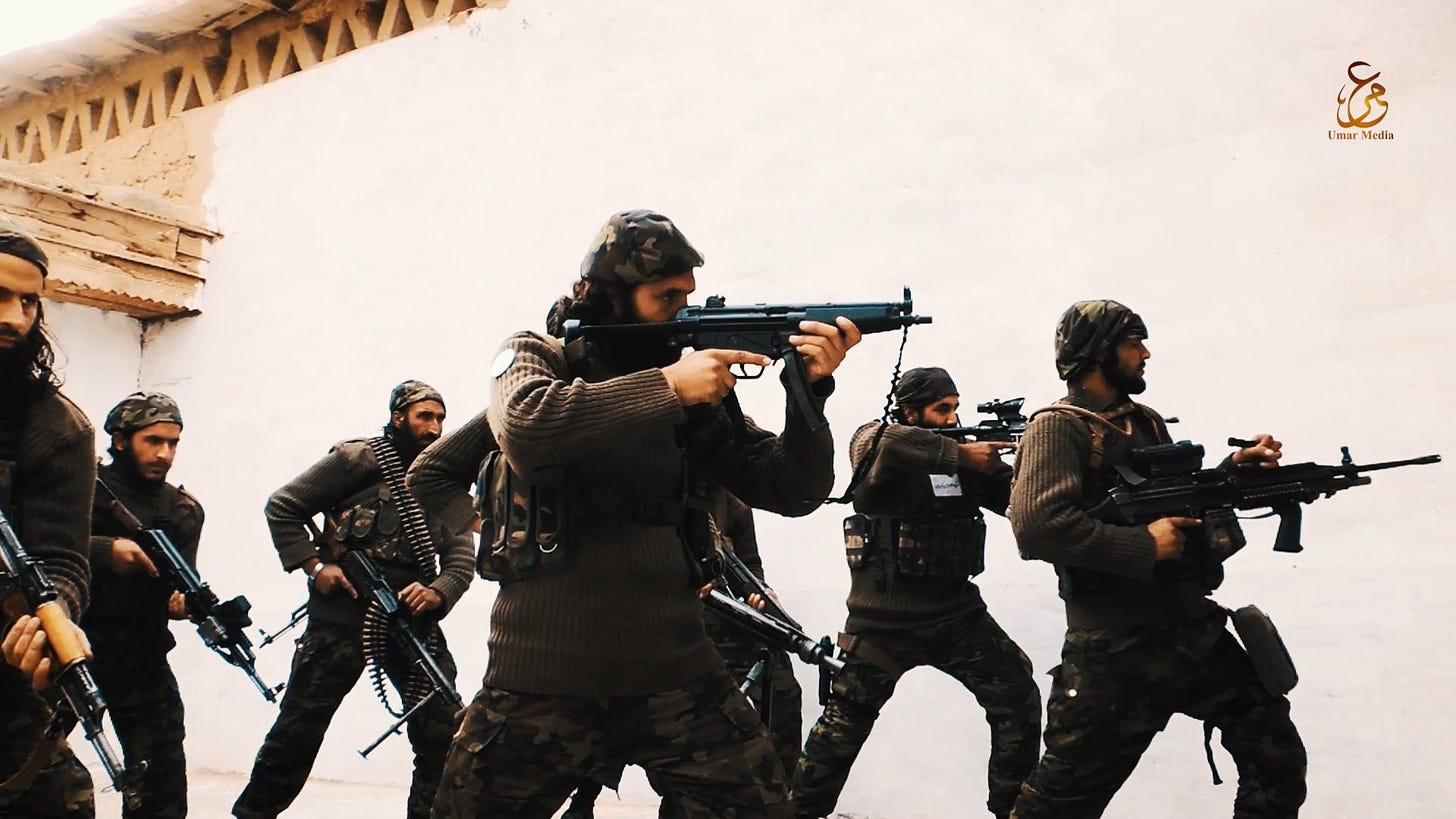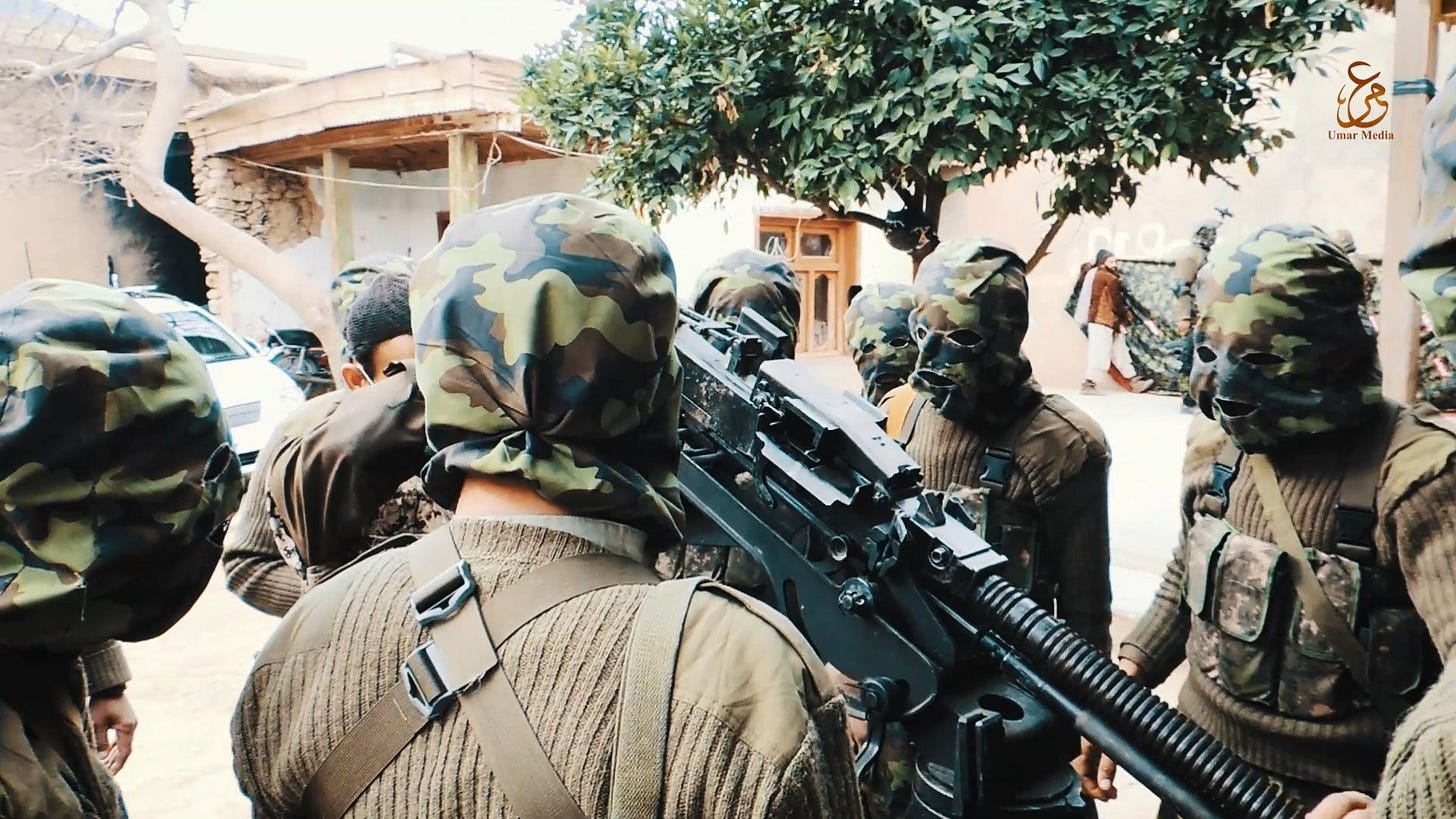It is through Pakistan's blood that the cost of terrorism has been paid. In the last two decades, Pakistan has lost $126 billion of its treasure, with a human cost of 83,000 killed and armed forces/police casualties numbering 9000. The conflict has created 3.4 million internally displaced people. Despite all these sacrifices, the smog of terror seems yet to have settled. As the attacks of Tehreek-e-Taliban (TTP) continue day in and day out, concerns about the security landscape of Pakistan are widespread.
Recent upticks in TTP ambushes against the security forces of Pakistan hinge on a set of major causes. Firstly, the TTP leadership is in the hands of a sagacious leader, Noor Wali Mehsud. Mehsud is well-versed in urban terrorism tactics (as he has completed his religious education in Faisalabad, Gujranwala, and Karachi and remained the TTP commander for Karachi for two years, 2013–2015) and a thinking terrorist.
Notably, a change in leadership is one of the reasons for Tehrik-e-Taliban Pakistan's comeback. After Mullah Fazlullah was killed in a US drone attack in June 2018, Noor Wali Mehsud was named the TTP's fourth chief. Since the first two TTP commanders, Baitullah Mehsud and Hakimullah Mehsud, were also Mehsud, the leadership of the TTP returned to the Mehsud tribe with the appointment of Noor Wali Mehsud. Since the beginning of TTP, Noor Wali Mehsud has been a member. In the 1990s, he fought alongside the insurgency movement and was a part of the Taliban movement. The most educated TTP leader is thought to be Noor Wali – he is also known by his pen name Ghare Starge (Double Vision).
In 2017, he published a book, "Inqilaab-e-Mehsud." In the text, he made an appeal to Pashtoon nationalism, and the TTP’s Deputy of South Waziristan, Azmat Mehsud publicized his support for PTM back in 2018. To amass local support, Mehsud splits the sentiments of Pushtoon by using the ethnic card. This Islamo-nationalist move is noteworthy, and Noor Wali knows where to shift allegiances according to the hour's need. In a CNN interview, Noor Wali argued in favor of an independent and sovereign state for the Pushtoons where the guiding principles would be taken from Sharia.
Militant Wire now offers regularly published research and analysis accessible to paid subscribers. Recent exclusive articles include:
• Manufacturing the Revolution: Weapons and Explosives Craft-Produced by Myanmar's Anti-Junta Fighters
• Communist Guerrillas Ambush Philippine Soldiers Reportedly Conducting Disaster Relief Operations
• Weapons of the Turkish Black Market
• Accelerationist Neo-Nazi Propaganda Group Releases New Documentary, "White Terror"
• Analysis: Possible Islamic State-Inspired Attack in Grozny Comes Amidst Surge in Anti-Russia Jihadist Propaganda
• An Investigation into Rising Tajik Islamic State Groups Recruiting Central Asians to Fight in Afghanistan
• The Life and Death of Asadullah al-Urgenchi: Islamic State Khurasan Eulogizes Influential Uzbek Ideologue
• October Bratislava Terror Attack: Far Right Gunman was Deeply Immersed in Online Accelerationism
• Al-Shabaab Continues Anti-China Campaign, Publishes Report on Chinese Influence Expansion in East Africa
• ISKP Forms New Media Relationship with Pro-Islamic State At-Taqwa Outlet, Criticizes Qatar World Cup; An Analysis of At-Taqwa's Propaganda Operations
• Weapons Used During Hay'at Tahrir al-Sham's Assaults in Idlib and Aleppo
• Turkistan Islamic Party Says Chinese Oppression Increasing in "Occupied" Xinjiang, Blames Government for Uyghurs Killed in Residential Building Fire, and Promises “Armed” Revenge
• Islamic State Khurasan’s Al-Azaim Tajiki Criticizes IS Discrimination Against Tajik Women in Syrian Camps; Tajik Pro-IS Financing and Recruitment Network Revealed as Part of ISKP
•Islamic State Boasts Legacy of Battles in Fallujah and Lasting Psychological Impact on America; Pro-IS Media Targets Saudi Arabia Following Islamabad Embassy Threat Warning
Mahsud left no stone unturned to get the people's sympathies and supported Tehreek-e-Labaik Pakistan (TLP) when the latter was on the road against France and Aurat March. This move illustrated that the TTP, under Noor Wali, seeks to support from TLP irrespective of the sectarian schism. Thence, Noor Wali changed the jihadist landscape of Pakistan and exacerbated Pakistan’s security challenges.
The second reason for TTP's resurgence is reconciliations with defective groups and their re-emergence. When the TTP declared a merger with an influential splinter group, the Hakeem Ullah Mehsud Group, the TTP began to make significant advances. This merger was followed by a string of subsequent mergers with an estimated 22 anti-state terrorist organizations in Pakistan, including four significant TTP splinters that had split off from it in 2014 for various reasons. As a result, of this re-emergence, the number of TTP members has increased to 4,000, per a UN report. And, for TTP fighters, Afghanistan soil provides safe sanctuaries when they hightail from Pakistan.
The third reason is the relationship between the Afghan Taliban and the TTP, which hinges on ethnoreligious linkages. The IEA seems reluctant to stall the TTP attacks on Pakistan despite its promise not to let any terrorist organization use Afghan soil against any neighboring country. The Afghan Taliban remembers the TTP's helping hands when the former was fighting against the Northern Alliance and the USA. Providing the historical linkages between the TTP and the Taliban, the latter has given de facto political asylum to the TTP terrorists and freedom of movement in Afghanistan has added to the group’s strategic depth.
The fourth reason is the alleged recent nexus between the TTP and the Balochistan liberation fighters of Makran, Balochistan. This duo could impetus the TTP attacks in Baluchistan province, particularly in its southern region where the Gwadar port is situated.
Lastly, a deep pool of recruits is available to the TTP since the structural issues in erstwhile FATA are yet to be addressed properly. Poverty, lack of education, health, and communication push many to turn to TTP as their only way out. On the other side, TTP ensures rewards in this materialistic world vis-à-vis afterlife since the TTP attributes the ongoing political chaos, skyrocketing stagflation, and natural disasters resulting from corrupt civil-military leadership and the dearth of Sharia law in Pakistan.
Pakistan’s position will likely worsen if TTP 2.0 remains on its soil after costing billions of dollars in damages and thousands of lives to terrorism. The ongoing fissure between the provincial and federal governments only hinders Pakistan’s ability to respond with a coherent strategy. This is only worsened by Pakistani leadership, in general, and KPK, in particular, hesitating to coordinate together instead of engaging in point scoring and 'naming and shaming' terror attacks.






